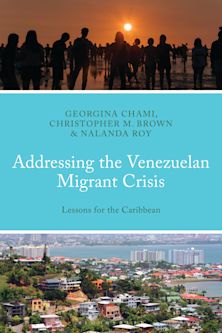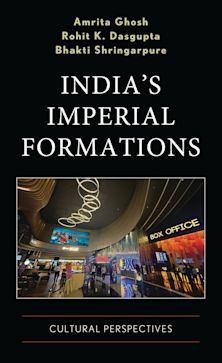- Home
- ACADEMIC
- Politics & International Relations
- Politics - Other
- Can Democracy Take Root in Post-Soviet Russia?
Can Democracy Take Root in Post-Soviet Russia?
Explorations in State-Society Relations
Can Democracy Take Root in Post-Soviet Russia?
Explorations in State-Society Relations
For information on how we process your data, read our Privacy Policy
Thank you. We will email you when this book is available to order
You must sign in to add this item to your wishlist. Please sign in or create an account
Description
Exploring the dynamics of state-society relations in post-Soviet Russia, noted scholars examine the nature of authority patterns within and between state and society. The authors explain congruence theory and employ it to interpret contemporary Russian politics. They assess the relative merits of state- and society-centered approaches to the study of democratic transitions and consider the value of survey research in identifying authority patterns; the nexus of mass and elite political attitudes; and the role of social, political, and economic institutions. Weighing the importance of political inclusion, the book evaluates the role of elites and the public in the transition and possible consolidation phases of Russian democratization. With its strong theoretical orientation, this pathbreaking volume raises new issues in the study of post-communist politics and, from the unifying perspective of congruence theory, provides a range of views on these hotly contested issues.
Table of Contents
Chapter 2 Preface
Part 3 Part I. Introduction
Chapter 4 Congruence Theory Explained
Chapter 5 Congruence Theory Applied: Democratization in Russia
Chapter 6 The Dynamics of State-Society Relations in Post-Soviet Russia
Part 7 Part II. Theory and Method
Chapter 8 Democratic Theories and Authority Patterns in Contemporary Russian Politics
Chapter 9 Congruence Theory as a Perspective on Russian Politics
Chapter 10 Survey Research and Authority Patterns in Contemporary Russia
Part 11 Part III. State-Centered versus Society-Centered Approaches
Chapter 12 Poltical Culture, Authority Patterns, and the Architecture of the New Russian Democracy
Chapter 13 Transitions from Communism: State-Centered Approaches
Chapter 14 Transitions from Communism: Putting Society in Its Place
Part 15 Part IV. Political Inclusion
Chapter 16 Lessons for the "Third Wave" from the First: An Essay on Democratization
Chapter 17 Does the Public Matter for Democratization in Russia? What We Have Learned from "Third Wave" Transitions and Public Opinion Surveys
Part 18 Part V. Conclusion
Chapter 19 State-Society Relations in the Soviet Union and Post-Soviet Russia
Chapter 20 Russia and the Conditions of Democracy
Chapter 21 Bibliography
Chapter 22 Index
Product details
| Published | 01 Jan 2000 |
|---|---|
| Format | Ebook (Epub & Mobi) |
| Edition | 1st |
| Extent | 432 |
| ISBN | 9780585114170 |
| Imprint | Rowman & Littlefield Publishers |
| Publisher | Bloomsbury Publishing |
About the contributors
Reviews
-
Altogether a splendid contribution to Russian studies and an invaluable text for advanced courses on contemporary and recent Russia.
Robert C. Tucker, Princeton University
-
It is not often that social science theories stand up so well thirty years on in circumstances unimaginable at their birth. The power of congruence theory is remarkable.
Robert Putnam, Harvard University
-
An ambitious but persuasive study of political culture in post-communist Russia, rooted in the comparative literature. It is only now that we are able to take stock of the dramatic changes-but also some stubborn continuities-in Russia and Eastern Europe, and this set of related papers by a group of leading scholars in the field is the best attempt that has so far been made to do so. I will be directing my students to this book, and using it a lot myself.
Stephen White, University of Glasgow
-
Combines theoretical and technical sophistication and area depth with a patient recognition of the magnitude and complexity of the undertaking. The authors have won the strongest claim among contemporary scholars to a 'watching brief' of the historic Russian democratization drama. They have turned it into an 'experiment' promising to yield significant knowledge, insofar as human ingenuity is capable of drawing lawful observations from the study of human affairs.
Gabriel A. Almond, Stanford University, From The Foreword
-
All of the contributors do an excellent job of intergrating theory with current transition process in Russia.
K. Brennan, Quachita Baptist University, Choice Reviews
-
An unusually thoughtful and well-integrated collection of essays on regime change in present-day Russia. Slices through the usual boundary between state-centered and society-centered interpretations of post-authoritarian transitions.
Timothy J. Colton, Harvard University



































